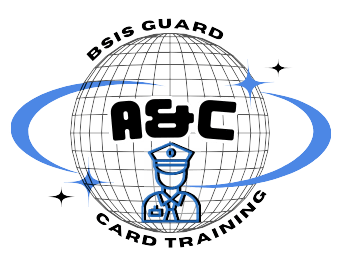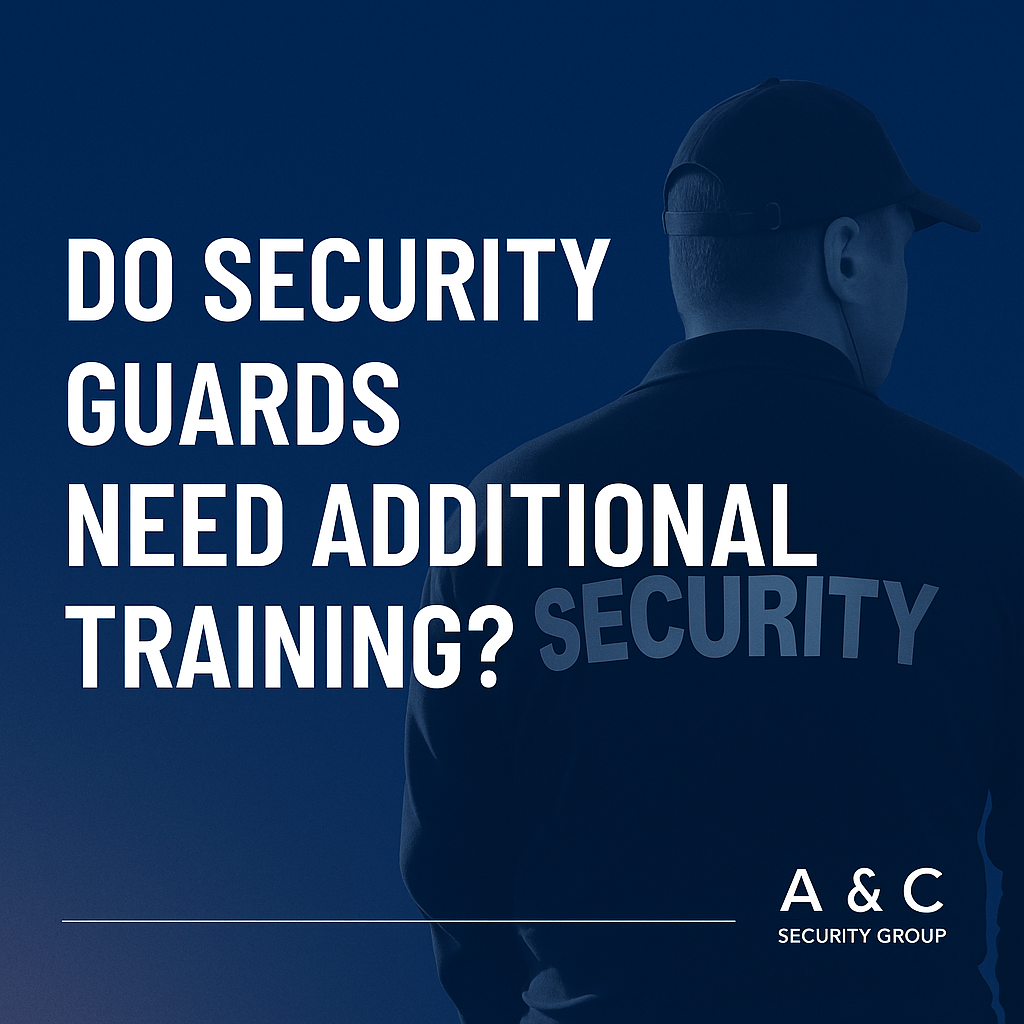When people earn their Guard Card, it’s a major first step into the security industry. But many new officers are surprised to learn that the journey doesn’t stop there. In California, security professionals are legally required to complete ongoing training to maintain compliance with the Bureau of Security and Investigative Services (BSIS).
So, do security guards need additional training? The answer is yes—and for good reason. Let’s break it down.
Understanding BSIS Training Requirements
The California BSIS has clear guidelines for training at different stages of your career.
- Initial Training – 8 hours (before you can start working)
- Power to Arrest (4 hours)
- Weapons of Mass Destruction & Terrorism Awareness (4 hours)
- On-the-Job Training – 32 hours (within your first 6 months)
- Subjects include public relations, observation & documentation, liability & legal aspects, communication skills, and emergency response.
- Annual Continuing Education – 8 hours every year
- This ensures you remain sharp, up to date with regulations, and competitive in the job market.
👉 Learn more about Guard Card Training here
Why Additional Training is Essential
- Compliance with BSIS Laws
Without completing the required hours, you risk suspension or revocation of your Guard Card. - Career Growth Opportunities
Employers look for officers who go beyond the basics. Specialized training in CPR, baton, pepper spray, or firearms can open doors to higher-paying jobs. - Better Job Performance
A guard who understands communication, observation, and reporting skills is far more effective in the field. - Preparedness for High-Risk Situations
From medical emergencies to active threats, additional training ensures you know how to respond.
Examples of Additional Training Topics
Beyond the state-required hours, security guards can benefit from:
- CPR & First Aid Certification – Critical for medical emergencies.
- Baton Training – Required to carry a baton legally in California.
- Pepper Spray Training – Adds another tool for non-lethal defense.
- Firearm Training – Required for those pursuing armed security guard jobs.
👉 Check out Guard Card & Firearm Training here
Real-Life Scenario
One of our students shared how additional report writing and communication training helped them handle a theft incident. Instead of escalating the situation, they observed, documented, and communicated effectively with law enforcement—preventing loss and protecting employees.
This is exactly why BSIS requires ongoing education. It makes security officers more reliable, professional, and effective.
FAQs About Additional Training
1. How soon after getting my Guard Card do I need more training?
Within your first 6 months of employment, you must complete 32 hours of training.
2. Do I need 8 hours of training every year?
Yes. California requires all licensed security guards to complete 8 hours annually for renewal.
3. Can I complete training online?
Yes. Some courses, like Power to Arrest, are available online. Others, like baton or firearm certification, require in-person training.
4. What happens if I don’t complete my additional training?
Failure to complete BSIS requirements can lead to suspension or revocation of your Guard Card.
What Training Does a Security Guard Need?
To work as a security guard in the United States, most states require individuals to complete specific training programs. These programs are designed to prepare you for the responsibilities of the job and ensure you meet legal and professional standards. Training typically includes:
- Power to Arrest Training: Learn how to detain individuals lawfully and handle tense situations.
- Emergency Response Training: Understand how to respond to fires, medical emergencies, and natural disasters.
- Report Writing: Gain skills in documenting incidents accurately and professionally.
- De-escalation Techniques: Learn strategies to diffuse conflicts without the use of force.
- Legal and Ethical Standards: Understand state laws, liability, and ethical conduct.
➡️ Explore our training courses designed to help you meet these requirements.
Training Needed for Security Guard Certification
To obtain a security guard license, most states have specific prerequisites. For example:
- High School Diploma or Equivalency: A high school diploma is often required to enroll in guard training programs.
- Minimum Age Requirement: You must be 18 years old (or 21 years old for armed security work).
- Criminal Background Check: Pass a background check to demonstrate your eligibility for the role.
- State-Specific Training: Complete the required guard training hours as mandated by your state.
In California, for instance, you’ll need to complete 8 hours of Power to Arrest Training and 32 hours of continuing education during your first two years of employment.
➡️ Ready to start your career? Enroll in our state-approved guard training today.

Do You Need Training to Be a Security Guard for Armed Work?
If you’re interested in working as an armed security officer, additional training is required. This includes:
- Firearm Safety and Handling: Learn how to safely operate and maintain a firearm.
- Use of Force: Understand when and how to use a firearm responsibly.
- State-Specific Requirements: Many states require a separate license or permit for armed work, such as California’s BSIS firearm permit.
➡️ Find out more about our armed security training programs.
Job Requirements and Career Opportunities
Working as a security guard offers a variety of opportunities in industries such as retail, corporate offices, and event management. Some key job requirements include:
- Physical fitness and situational awareness.
- Strong communication and interpersonal skills.
- Ability to follow instructions and handle stressful situations.
With additional certifications like emergency response and private security training, you can expand your career into specialized roles, including loss prevention, bodyguard services, or armed security.
Frequently Asked Questions
1. Do you need a license to work as a security guard? Yes, most states require a security guard license to work legally. Licensing typically involves completing training, passing a background check, and meeting state-specific requirements.
2. How long does security guard training take? The duration varies by state but usually includes 8 to 40 hours of initial training, with ongoing continuing education requirements.
3. Can I work as a security guard without a high school diploma? Some states may allow exceptions, but most require a high school diploma or equivalency.
4. What are the age requirements to become a security guard? You must be at least 18 years old for unarmed work and 21 years old for armed positions.
5. What additional training is needed for private security jobs? Advanced roles may require certifications in areas like emergency response, report writing, or defensive tactics.
Conclusion: Training Never Stops
So, do security guards need additional training? Absolutely.
It’s not just about meeting BSIS requirements—it’s about becoming a professional that employers trust and the public depends on.
➡️ Ready to advance your career? Explore our BSIS-approved training programs here.
➡️ Have more questions? Visit our FAQ page for answers.

